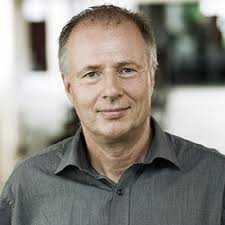The European Fund for Investigative Journalism was created in 2008 to fill a glaring need in European journalism: providing grants to reporters working on investigative projects, especially on cross-border issues. Since then, Journalismfund.eu, as it’s called, has made dozens of grants that have produced groundbreaking stories ranging from human slavery and arms trafficking to property corruption and document fraud.
Behind its grant-making is a jury of four experienced–but anonymous–“persona lities knowledgeable in the field of journalism and media.” The jury is unnamed to guarantee its complete independence. The membership is rotating, and once a member steps off the jury, her or his name is made known. Until this week, only one judge had come forward — The Guardian‘s David Leigh. Now, after four years, Nils Mulvad has stepped down from the jury.
lities knowledgeable in the field of journalism and media.” The jury is unnamed to guarantee its complete independence. The membership is rotating, and once a member steps off the jury, her or his name is made known. Until this week, only one judge had come forward — The Guardian‘s David Leigh. Now, after four years, Nils Mulvad has stepped down from the jury.
Mulvad is an associate professor at The Danish School of Media and Journalism and a partner and editor at Kaas & Mulvad, a media consulting firm that specializes in new methods in data journalism and using mobile and social media for journalism.
Until the end of 2006, he served as executive director of the Danish International Center for Analytical Reporting, DICAR. In 2005 he co-founded the European network that revealed data showing who benefits from EU agricultural subsidies (now published on farmsubsidy.org). Together with former Investigative Reporters and Editors Director Brant Houston, he was largely responsible for the two first Global Investigative Journalism Conferences in 2001 and 2003 in Copenhagen. In 2003, with Houston, he co-founded the Global Investigative Journalism Network. In honor of his many accomplishments, in 2006 he was honored with the European Journalist of the Year award. Most recently, in 2012, he and other Danish journalists co-founded the nonprofit Investigative Reporting Denmark.
Journalismfund.eu’s Rafael Njotea interviewed Mulvad about his time as a jury member, the kinds of reporting he was looking for, and the need for cross-border investigative “in Europe on European issues.”

Nils Mulvad
Nils, what can you say about the overall quality of the applications? And their originality? Have they improved over the years?
We have definitely seen a move to more thorough and well-thought-out applications over the years. But it has always been hard to divide the money, because more than enough good applications were sent in each time around.
Still, there were always quite some applications that in fact were not investigative journalism. Investigative journalism should investigate concrete problems and bring new documentation, not just gather different views on a broad topic.
Can you discern any tendencies in the proposed working method of the applying journalists? Do they all do journalism in more or less the same way?
They are very different indeed. But for our evaluation of the applications we focused on investigative stories that had a genuinely cross-border approach. The second thing we took into account was the fact that the project was a cooperation between journalists in the involved countries. So if you look at the projects that were actually supported, there are of course not too many differences between them as far as working method is concerned.
What sorts of applications had you hoped to see more of?
There is a huge need for cross-border investigations in Europe on European issues. Equally big is the need for journalists to start working with data more and present findings on digital platforms, especially mobile devices. We really need to develop that. I hope this will improve in applications in the coming years.
A lot of the published working grants are situated in the Balkans. Why do you think that is?
There has been a lot to follow-up after the war in former Yugoslavia, and the area simply has more organised crime and corruption compared to other parts of Europe. Even so, you can find a lot of supported projects all over Europe.
Would the realisation of such projects have been possible without the support of Journalismfund.eu?
I think funding this kind of journalism is highly necessary and important. A very good thing about Journalismfund.eu is that the funding goes directly to the journalists doing the investigations. We need to support the doers. There are some other organisations doing it as well, but it still needs to grow. And I expect it to.
Can Journalismfund.eu have a significant impact on journalism in Europe in the long run?
I hope so. Like I said, there is a huge need for this kind of journalism and the development of methods. We will see others going into this. Journalismfund.eu has the right attitude – relying on a jury of investigative journalists deciding what the money will be used for.

